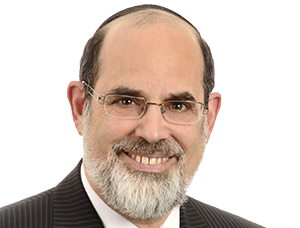Rabbis address the struggle of fulfilling “zman simchateneinu”, the commandment to rejoice during the holiday of Sukkot, while the world is suffering.
Rabbi Raysh Weiss
Shaar Shalom Congregation, Halifax
Rabbi Debra Landsberg
Temple Emanu-el, Toronto
Rabbi Weiss: During Sukkot, we invoke a spirit of joy, referring to the holiday as “zman simchateinu,” the time of our joy. But for a people whose history has been marred by repeated chapters of adversity and persecution, experiencing true joyousness has often been challenging. Today, with the shocking escalation of anti-Semitism, racism and violence in the United States, escalating threats of global war, the rise of the far-right in the recent German elections, and the devastating hurricanes, earthquakes and flooding sweeping across the Americas, how is it possible to experience joy when we are so worried about current events?
Rabbi Landsberg: The famed Jewish mystic Rabbi Yisroel ben Eliezer, commonly known as the Baal Shem Tov, told a story of a musician who played so beautifully and sweetly that whomever heard him would begin to dance. Once, a deaf man saw the people dancing wildly and thought, “They must be mad!” If he could only have heard the music, he would have understood, and he too would have danced.
While I appreciate deeply the spiritual challenge you raise, I would argue that joy is a core religious attitude toward life, not a response to the world around us. In fact, Jews are reminded to serve with joy every day in the morning prayers, when we recite Psalm 100: “Shout for joy to the Lord, all the earth. Worship the Lord with gladness; come before Him with joyful songs.”
Rabbi Weiss: Sukkot beautifully exemplifies this precise conundrum. On the one hand, it is the festival in which we unite together in joy, singing and celebration, offering thanks to God for the bounty that we have enjoyed in the previous year – it is the one holiday in which we are explicitly commanded to be happy! On the other hand, during Sukkot, we also read from the Book of Ecclesiastes, a sobering book of eternal wisdom, and we expose ourselves to the elements by inhabiting huts that are flimsy and temporary by design.
But by dwelling in sukkot, we remind ourselves of what truly inspires joy – not the edifices we inhabit, but the people with whom we share these moments, and our shared history and tradition. Paradoxically, we achieve this sense of eternal joy through our acknowledgement of the ephemeral nature of our material existence. For me, this kind of emotional complexity is a deeply Jewish concept.
Rabbi Landsberg: Rav Nachman of Breslov, a great-grandson of the Baal Shem Tov, taught that broken-heartedness can easily lead to melancholy and dark places, so one must work very hard for joy. Why? I think it has to do with the enervating nature of melancholy. It is isolating and deprives one of the strength to go forth and work to bring healing into our world.
Joy, on the other hand, is quite different. It energizes. As Rabbi Jonathan Sacks so beautifully taught, joy “is a social emotion. It is the exhilaration we feel when we merge with others. It is the redemption of solitude.” Joy, therefore, can powerfully enable us to engage with the world around us, since it flows from a sense of connectedness.
Rabbi Weiss: To paraphrase Rabbi Abraham Joshua Heschel, despair is a very selfish response. To despair means to abrogate from any sense of responsibility or agency in making the world more whole. Perhaps, then, the act of extending oneself for the betterment of the world is, in itself, an expression of joy, as it points to hope.
For Heschel, the act of celebrating was essential. In a television interview just shortly before his passing, he offered a message to young people that also speaks to the duality of Sukkot. “Let them remember that there is a meaning beyond absurdity,” he said. “Let them be sure that every little deed counts, that every word has power and that we can, everyone, do our share to redeem the world in spite of all the absurdities and all the frustrations and disappointments. And above all, remember that the meaning of life is to build a life as if it were a work of art.
“What’s really important is life as a celebration. In a very deep sense, I would say that the addictions from which so many people suffer are due to the fact that man cannot live such a shallow life, stale. He needs moments of celebration.”







